February 16, 2023 – Chitabe, Botswana
We leave friends behind at each camp. At Chitabe we parted from several.
There was George, a gregarious fellow from Michigan who was traveling alone and leaving a lot of smiles in his wake.
We hit it off with Neil and Wendy, who either own the Wilderness chain of camps, or are integral to the senior management of the group. Neil is a pilot, engineer, businessman, with a wide variety of interests. Wendy is an academic, (which put a little distance between us), but she is kind in a “Bear” kind of way, and very easy to relate to. The couple have four children, from two marriages, which we are also familiar with. We shared a table with them at meals on three occasions, discussing topics as varied as, “life on the island of Mauritius”, and “why Dodo birds went extinct”, to “the importance of electric fencing on a camp boardwalk, to ward off elephants”. They were conversations I will not forget.
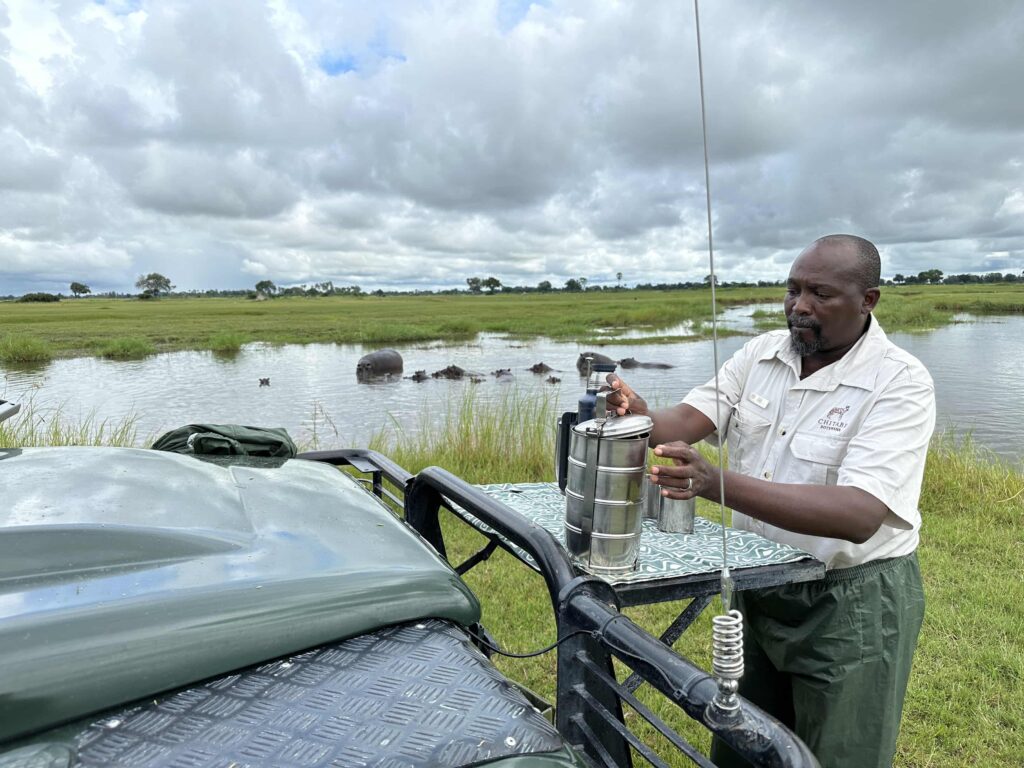
The relationship we developed with OD, our wildlife guide and host, is another I will long remember. OD is an absolute authority on wildlife, their habits, and inter-species relationships. There are 540 types of birds in the Okavango Delta. OD is familiar with all of them, (not just the species, the individuals). He put us in camera range of every animal in the park.
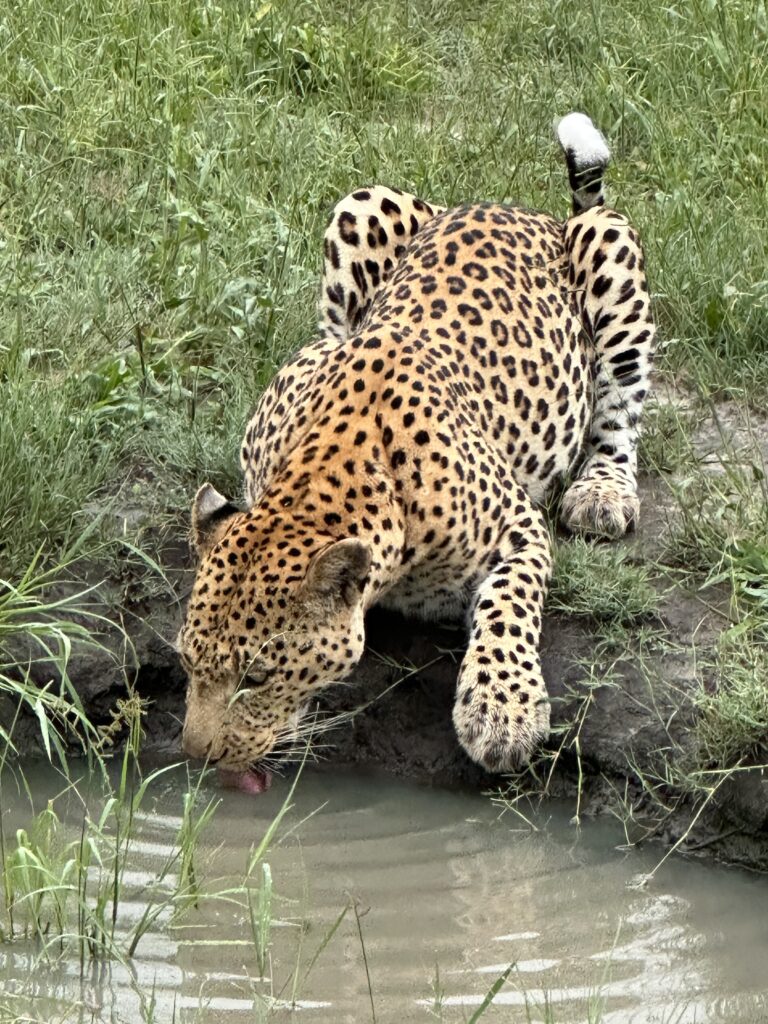
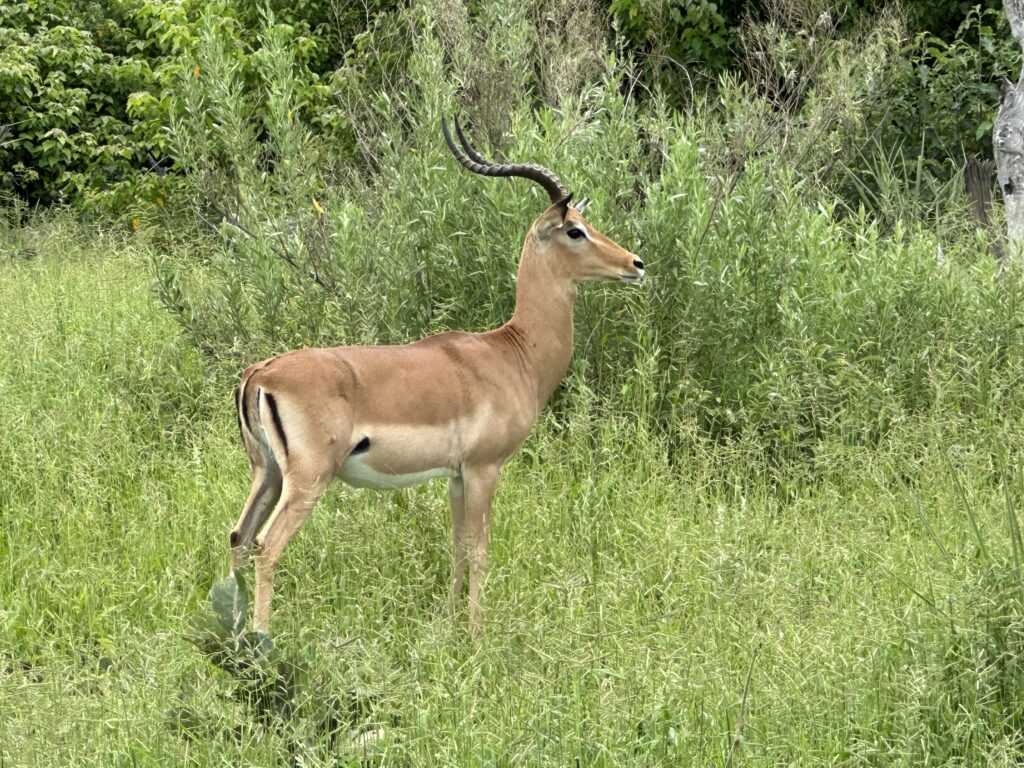
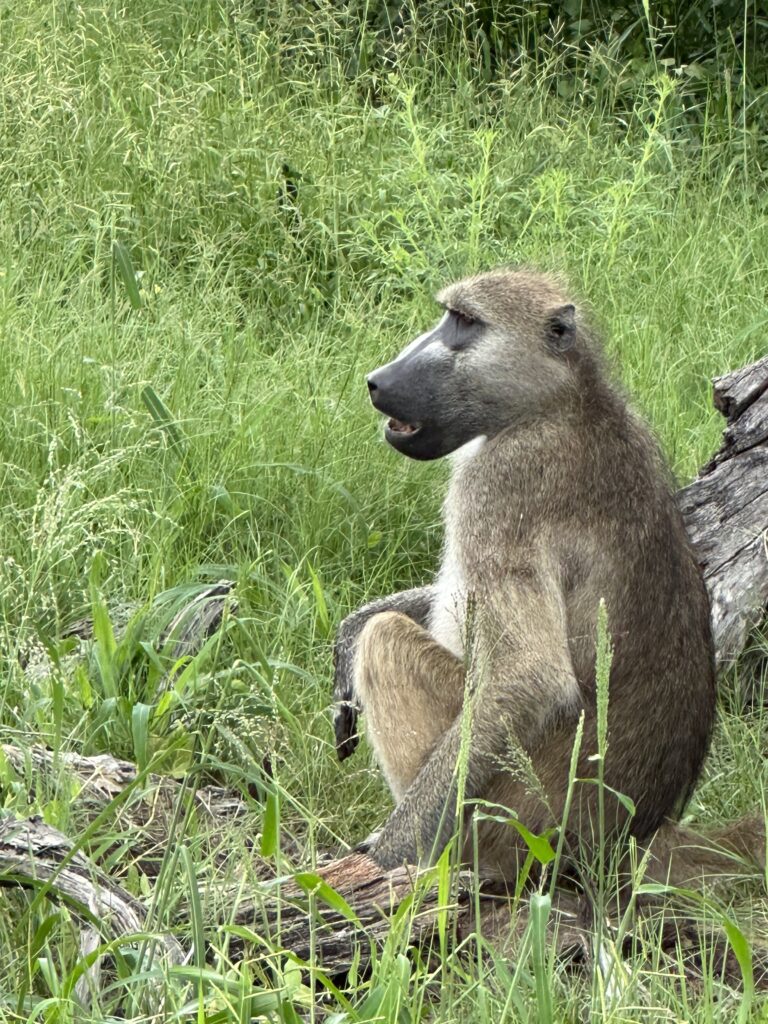
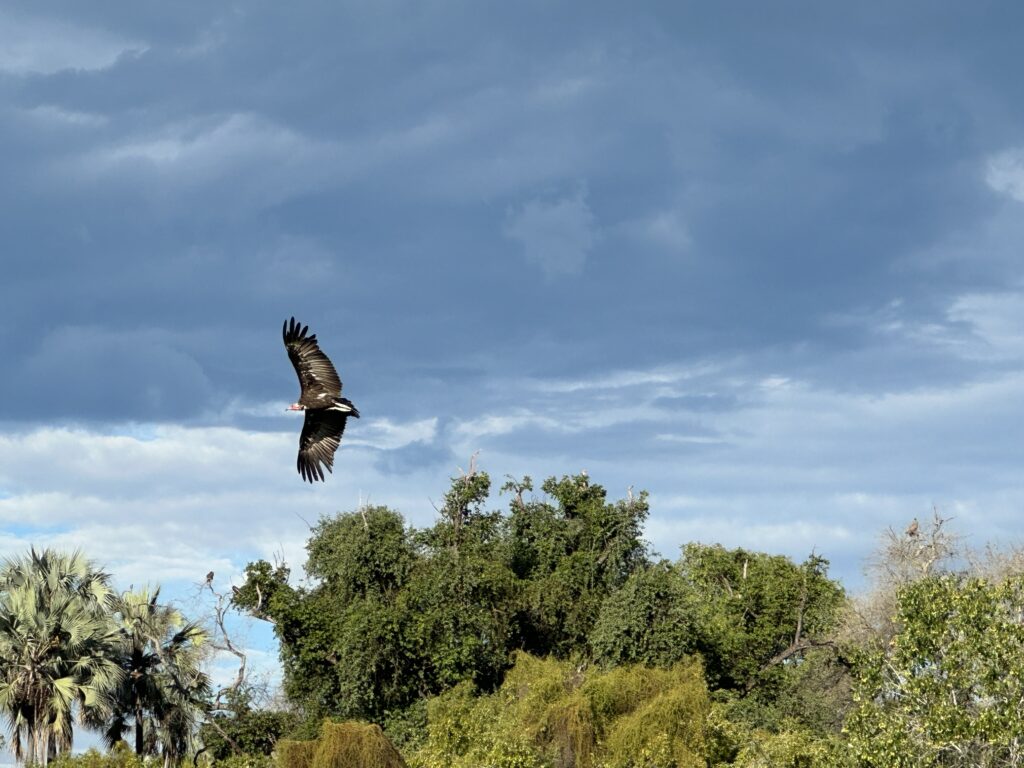
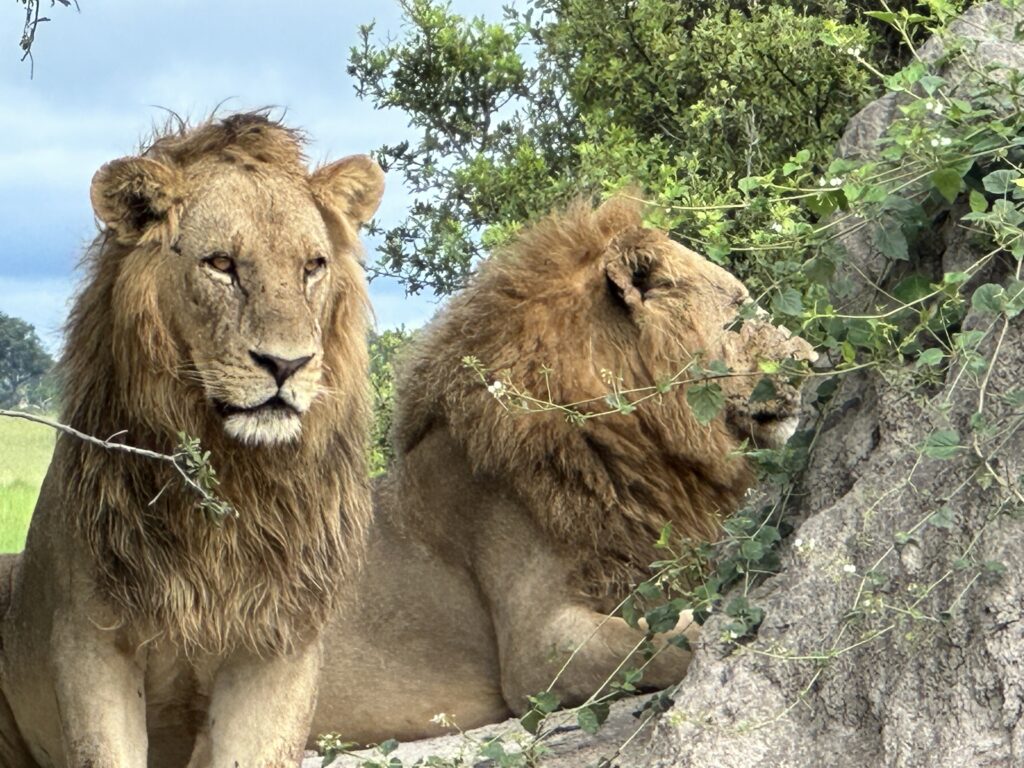
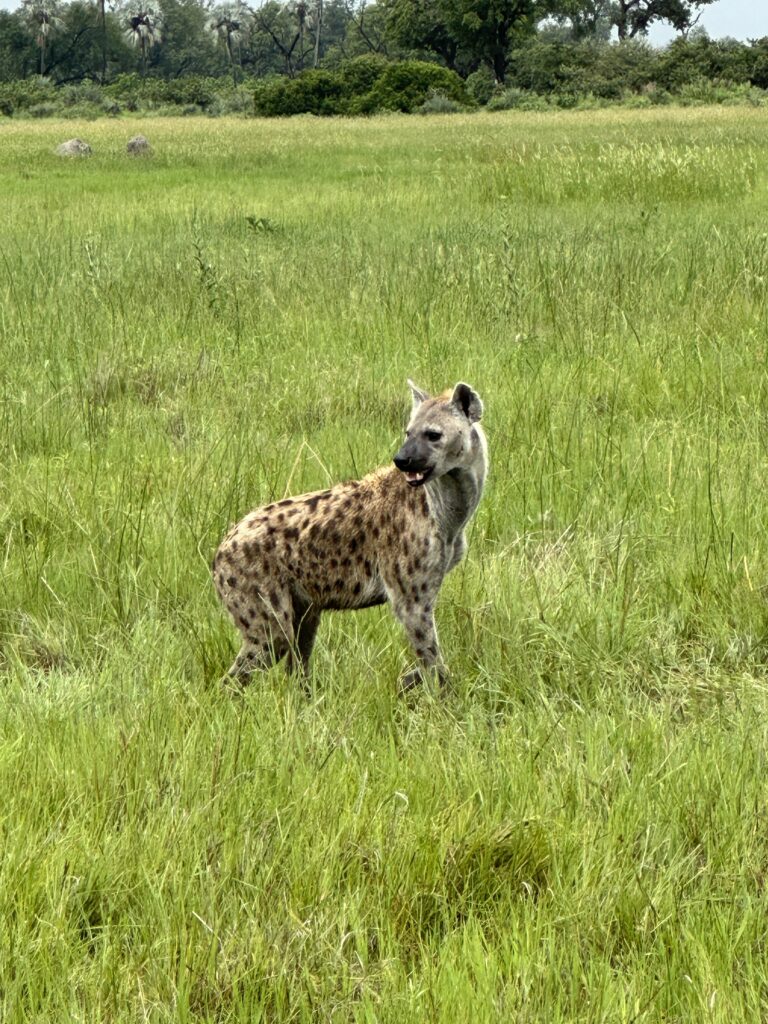
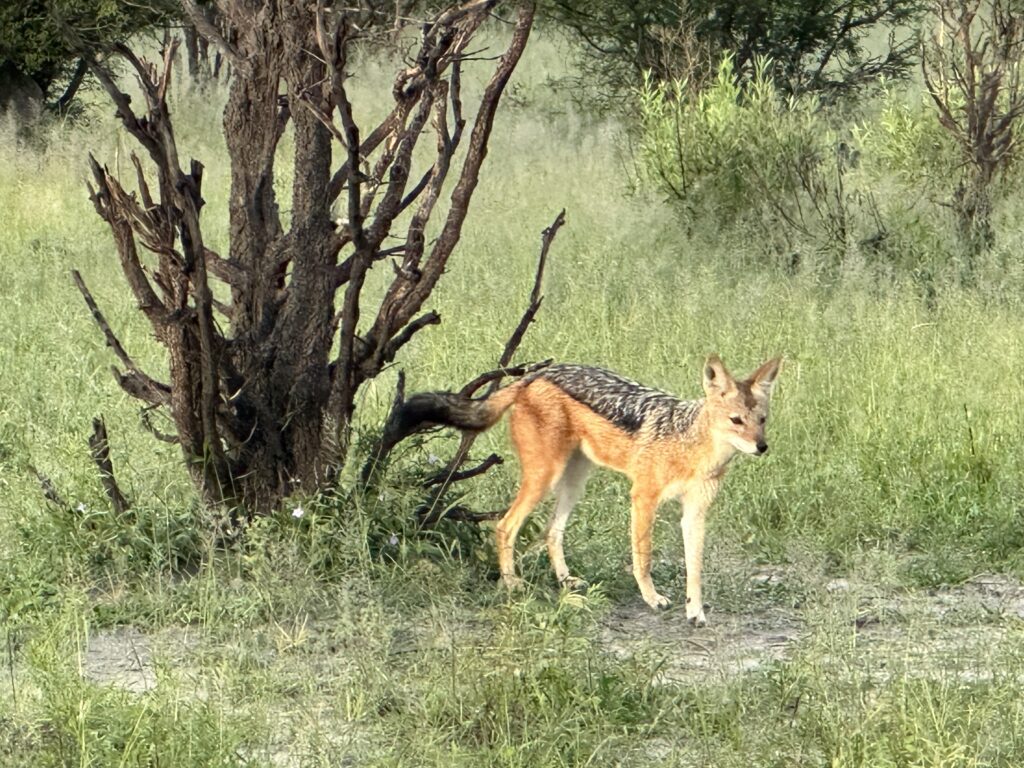
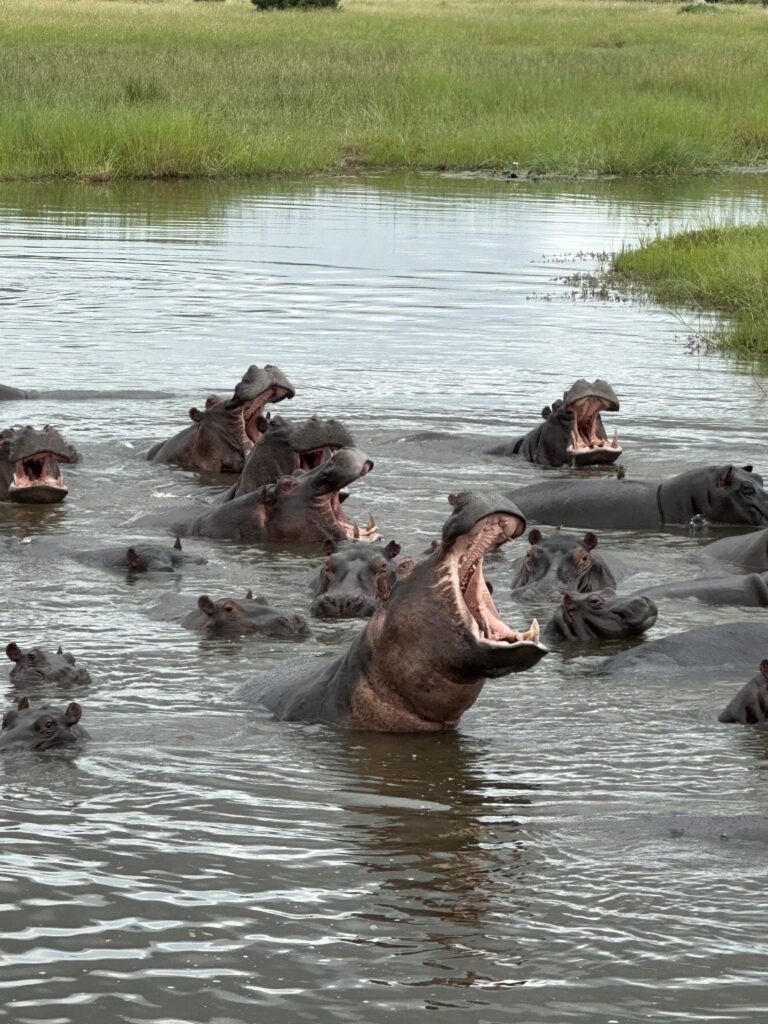
But, where we really hit it off with OD was on the topic of farming, and cattle. OD eluded to his agricultural background, which led to a discussion about the similarities and differences between Canadian and Botswanan farming. Once we both recognized the other’s interest in agriculture the conversation drifted back to the topic regularly.
I won’t go into great detail here but I will say that while the differences are vast, raising livestock in either country is a passion.
Animal husbandry is a tradition for OD and his family. The way he described it, the accumulation of livestock (cattle, goats, and sheep) is a Botswanan’s retirement plan. OD works guiding at the Wilderness camp, away from his family for long periods of time, to earn money to feed his family and build his livestock herd. He was very interested in ways and means of Canadian cattle operations as a comparison.
We had discussed the value of goats, so when OD dropped us off at the airport this morning, I gave him a tip that is approximately the value of a premium goat. I thanked him for the excellent guiding and conversation we have had, and asked if he would do me a favour. I asked OD if he would let me name the goat.
We left several friends behind in the Okavango Delta, but we return home knowing that we have made a lasting impression. Somewhere in eastern Botswana, there is….
… a Goat Named Terri.
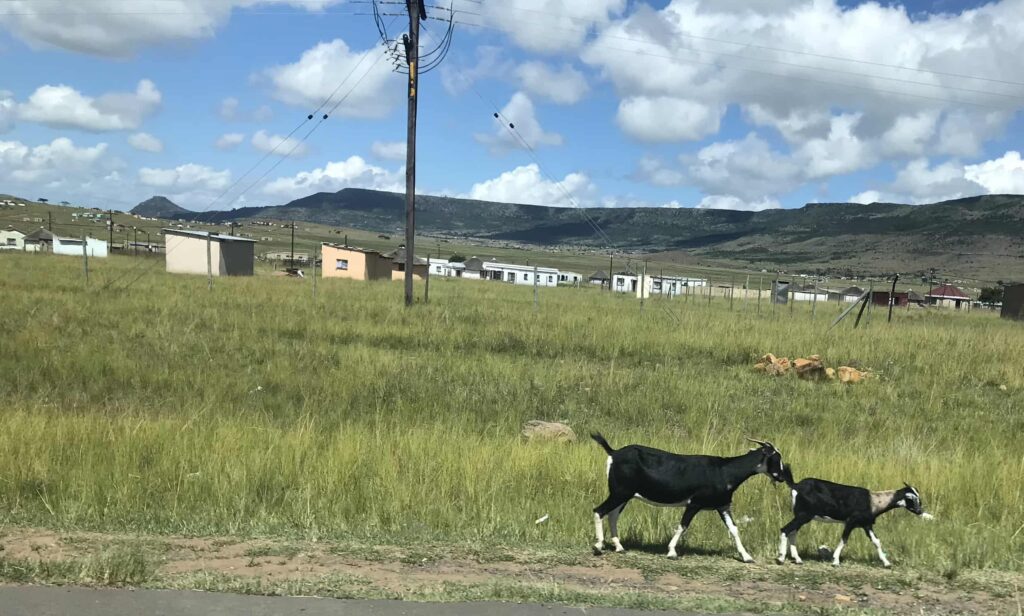


Patricia Arbique
Cattle and goats….u are one lucky woman, Ter Bear.